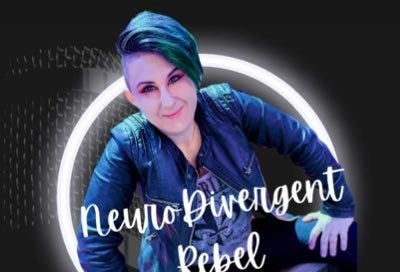Self-Identified Autistics: IS diagnosis a Privilege? Why Some People May Self-Diagnose with Autism
There is a misconception that, because someone's NeuroDivergence is identified in adulthood, they struggled less growing up than NeuroDivergent People diagnosed as children.
In the FULL (paid) Substack Issue:
NeuroDivergence & Stigma
Forced Medicalization & Institutionalized Abuse
Denial of NeuroDivergent Autonomy
Denial of Medical Services due to NeuroDivergence
NeuroDivergence and Trans Rights
Custody Risks to NeuroDivergent Parents
Immigration Concerns for People with Disabilities
When I was first diagnosed Autistic, I felt lucky, fortunate, and privileged to have received that diagnosis (because many people do not have the means to access formal Autism assessments). There are even Autistic People worldwide who don't want a formal diagnosis (with good reason).
In the past, when I've said, "Diagnosis is a privilege," some people (primarily non-autistic parents of Autistic kids) have taken offense, claiming my saying that "diagnosis is a privilege" an "insult to early-identified people" or (twisting my words) claiming I'm saying Autistics "who were easier to identify as kids" (due to having more complex struggles) are "more privileged" than those who were missed, who don't appear to struggle as much, or who can hide their Autistic traits.
There is a misconception that, because someone's NeuroDivergence is identified in adulthood, they struggled less growing up than NeuroDivergent People diagnosed as children. However, this is not true, especially for low-income or multiply marginalized Autistics (even more so if we have undiagnosed NeuroDivergent Parents, as many of us do).
Because many NeuroDivergent People have NeuroDivergent Parents (who may or may not be aware of their NeuroTypes), NeuroDivergence is often first noticed by people outside of that child's family (when kids encounter their first NeuroTyopically driven usually school or daycare), this is because NeuroDivergent traits and habits expressed at home considered "normal" to NeuroDivergent parents are picked up on by NeuroTypicals as "abnormal" or "other" (because the NeuroTypical adults often expect all kids to behave the way NeuroTypical kids do)-this is why it is hard for non-autistics to parent Autistic kids (and vice versa).
Being identified as Autistic is a privilege, NOT because it is a privilege to be "more easily identifiable as Autistic" (as some have tried to twist my words to say), but because having the safety and means to safely access a diagnosis is a privilege regardless of age (though some may opt out of receiving medical confirmation).
It's a privilege because many low-income and multiply marginalized NeuroDivergent kids will be labeled as having "behavioral problems," Our struggles will be ignored or blamed on single parents or poverty.
We struggle just as much as NeuroDivergent children who are earlier identified (but because nobody knows we are NeuroDivergent, we are punished for expressing those struggles).
We didn't go through formal NeuroDivergent Conversion Therapies (that go by many names) that teach us to camouflage and hide our NeuroDivergent traits (because the cruel and unkind world forced us to hide).
We were saved from being placed in coercive and controlling NeuroDivergent "normalization therapies," only to be coerced and controlled by people in the world around us.
Diagnosed NeuroDivergent People might have known the name for what people found undesirable in them (if the information was shared with them). Some parents won’t tell a kid when they’re diagnosed with NeuroDivergence in childhood.
We who were undiagnosed (and those who weren’t told) knew we were hated but didn't know why people hated us. It was confusing because we thought we were broken NeuroTypical people, holding ourselves to NeuroTypical standards when we were something different entirely.
Not being diagnosed saved me from being shipped into ABA, but it didn't keep me from being ABAed by the world.
Not being diagnosed as a kid "saved me from being labeled," but (since I was a visibly NeuroDivergent young person) I wasn't saved from the stigma associated with my NeuroDivergence.
Having the financial means to access a diagnosis is a privilege.
If we grew up in poverty, we may have grown up without access to health care, or our parents may have feared the consequences of accessing that care.
Paid Subscribers have access to the full post.
Keep reading with a 7-day free trial
Subscribe to NeuroDivergent Rebel’s Substack to keep reading this post and get 7 days of free access to the full post archives.



